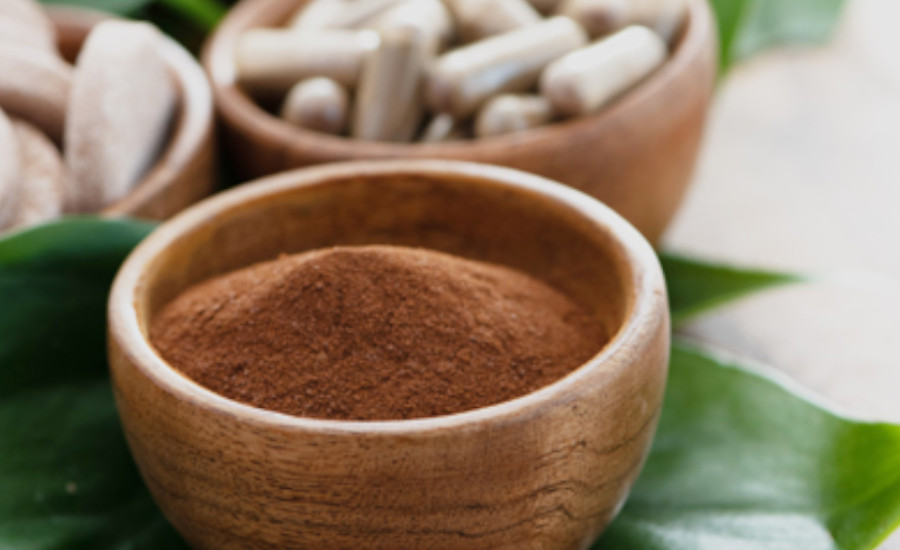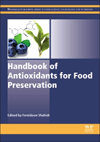Immune ingredients seeing healthy growth
Gut health and protein ingredients have a long future runway

Courtesy of NZMP
Immunity products and the ingredients that power them could provide one of the best growth prospects in the dairy industry for years to come.
“The spike in usage of vitamins and zinc parallels the rise in consumption of immunity supplements and indicates growth potential for immune health innovation,” according to Unlocking Insights Into the Supplement Consumer: 2022 Trends and Opportunities, a whitepaper produced by Marketplace.
The COVID-19 pandemic was certainly in part a catalyst for this spike as perceptions of personal health also shifted in the past two years. When Marketplace asked participants in its study to describe aspects of their health compared to two years ago, more than one-third reported their immune health (37%) or diet (37%) is better. However, more than one-fourth report their anxiety/stress levels (28%) or energy (27%) are worse than compared to two years ago.
“Today's consumers are constantly bombarded by the stresses of the modern lifestyle and viruses. These factors have triggered a renewed interest in holistic support for immune health and the body's natural defense systems,” Joe O’Neill, vice president of sales and business development at A&B Ingredients, tells Dairy Foods.
Consumer attitudes toward healthy eating shifted many times during and following the COVID-19 pandemic, says Marshall Fong, senior global marketing manager, active living, NZMP — Ingredients by Fonterra.
“During lockdowns, there was a marked increase in consumption of convenience foods and delivery, that some might characterize as being unhealthy. There were also some positive trends, including the increased consumption of dairy products for immunity, such as yogurts and kefirs,” he says. “Things are changing again, as shutdowns and restrictions disappear and people find a new normal.”

Since the pandemic, MORRE-TEC Industries Inc. has seen more and more people looking at healthier eating alternatives and increased interest in supplements containing immunity products, Vince Forte, technical development manager for the Union, N.J.-based company, adds. “We believe that this will continue post-pandemic as more and more information is available on those healthier alternatives,” he says.
Justin Green, Ph.D., director of Scientific Affairs for Cargill’s health technologies business, noticed a shift toward healthier eating even before the pandemic began. Prior to 2019, consumers were increasingly taking a more active role in their personal health and wellness. The pandemic amplified those trends and brought new focus to immune health, Green relays.
To be clear, no food or supplement has been shown to treat, cure, prevent or mitigate COVID-19, and we do not market our products to treat, cure, prevent, or mitigate any specific disease, including COVID-19, Green stresses.
“However, … research from the International Food Information Council (IFIC) found one in four consumers are looking for immune functional health benefits from food, and two-thirds of consumers are interested in learning more about the role of food and nutrients in immune health,” he says.
Changes in consumer habits during the COVID-19 pandemic are likely to stay for several reasons, says Lindsey Ormond, director of nutrition and research for Milk Specialties Global.
“The fear of so-called ‘long COVID’ has encouraged many to take better care of themselves. And if consumer research is to be believed, the trend is here to stay, with a more proactive approach to health and wellbeing touted as a top ongoing focus,” Ormond mentions.
Beyond vitamins
Vitamins C and D are perhaps the most well-known immunity-enhancing ingredients. Experts point to seeing strong growth for both, but it goes way beyond that.
“An emerging class of health-supportive ingredients called postbiotics are also gaining traction,” Green says. “Cargill’s proprietary consumer perception survey finds one in five shoppers are familiar with postbiotics. We believe this awareness will only grow, propelled by increased media coverage of the emerging category,”
Evidence shows NZMP’s probiotics, lactoferrin and phospholipids provide immune support, along with related and/or ancillary benefits like gut health and mood/stress/anxiety support, Fong reveals.
“NZMP’s BifidoB HN019 and LactoB HN001 probiotics are already featured in some of the most popular probiotic products positioned for immunity,” Fong says. “In a May 2022 CARAVAN survey conducted by NZMP on 1,011 U.S. adults 18-plus, 55% of respondents that reported having an immunity need are already using probiotics to meet their needs, and another 39% indicated they would consider probiotics for immunity.”
Ormond specifically zeroed in on lactoferrin as a great example of a natural ingredient that’s seen increased demand during the pandemic.
“With a long history of immune benefits, lactoferrin’s antiviral properties meant it was tested in both COVID-19 patients and those exposed to COVID-19,” Ormond says. “Not only did it show faster recovery of symptoms and quicker time to a negative PCR test than pharmaceutical interventions, it also showed promise for preventing contracting COVID-19.”
In addition to vitamins C and D, MORRE-TEC has seen increased interest in vitamin E, zinc and elderberry.
“This is mostly due to information coming out on these ingredients for helping our immune systems work better. Since immunity and stress go hand in hand, we have seen interest in ingredients that may aid in focusing and stress like theanine, magnesium, melatonin, valerian, and others stress-related supplements,” Forte states.
Gut-ting it out
When it comes to immunity, gut health goes hand-in-hand. Consumers’ diets greatly affect gut health and in turn the immune system, something which they are recognizing more and more today.
“We see people looking for products containing ingredients like inulin, probiotics, and other fiber products like pectins to aid with gut health,” MORRE-TEC’s Forte notes.
There are more immune cells in the gut than anywhere else in the body, Green adds, revealing it is home to 70% of the body’s immune cells.
“Considering the gastrointestinal tract’s complex job, it’s easy to understand why. It strives to keep toxic molecules out of the body and defend against pathogenic organisms, while still allowing nutrients in and enabling ‘good’ bacteria to thrive. Successfully accomplishing all these feats requires a robust, discriminating, dynamic and balanced immune system,” he says.
Probiotics and fiber are top of mind for health-conscious consumers, O’Neill says.
“With the growing saturation of the health supplement market, brands that can make clinically-backed health claims will enjoy greater success,” he states. “… A substantial body of evidence supports that gut microbiota plays a major role in regulating immune, endocrine and metabolic functions.”
Pros of protein
Although popular for years, consumers continue to seek out protein. In fact, milk protein products have never been in higher demand, Ormond stresses.
“The trend toward more holistic health and an appreciation of the benefits that high-quality protein plays in this was already gaining momentum before the pandemic, and then accelerated during it,” she relays. “With the combination of high-quality protein facilitating many health benefits, its neutral taste and multiple application potential, milk protein products are well placed to satisfy consumer needs.”
There is tremendous growth and demand in milk protein products, to the point where growth is limited by milk protein supply, NZMP’s Fong states.
“This is being driven by the increased awareness of the benefits of milk protein consumption, including in muscle health, growth and retention, weight management and body mass composition, and the importance of protein consumption throughout all life stages to promote healthy aging and mobility,” says Fong. “We are increasingly seeing ready-to-mix protein products that add probiotics.”
Future of immunity
In the future, there are multiple opportunities for immune-boosting ingredients to take over the health and wellness market, A&B Ingredients’ O’Neill asserts, noting shelf-stable probiotics allow brands to broaden their range of applications with new, convenient, and even indulgent offerings to increase accessibility and therefore grow the market.
“PA5051 probiotic can be added to beverages, soups, fermented dairy, snacks, and even chocolate, making it one of the most versatile immune-supporting ingredients on the market,” he mentions. “Also, it is a plant-based probiotic, which makes it suitable for vegan and vegetarian applications.”
Given how foundational immune health is to overall well-being, Cargill expects demand for products that support immune health to continue their upward trajectory, though perhaps at a steadier pace than the last couple of years. In particular, Cargill sees plenty of upside for postbiotics.
“Through Cargill’s annual proprietary survey, IngredienTracker, we gauge consumer perceptions of hundreds of food ingredients,” Green says. “In last year’s survey, we found one in five shoppers were already familiar with postbiotics, a great start for this relative newcomer to the consumer space. As we continue to invest to build consumer awareness for the category and our ingredient, EpiCor postbiotic, we expect this number will steadily grow.”
Today, there is an increase in ingredients targeting multiple biological mechanisms that are supported by human clinical trials, Fong says, noting that COVID-19 may have accelerated research.
“We’re also seeing, and participating in, the investment into scientific research showing multiple related health-benefits, for example, mood/stress and immunity for probiotics, giving brands the ability to position more compelling products to consumers,” Fong states.
Forte concludes that the interest for immune-boosting ingredients will continue to increase “as more and more information becomes available on the positive influence these ingredients have on our overall health.”
Looking for a reprint of this article?
From high-res PDFs to custom plaques, order your copy today!







